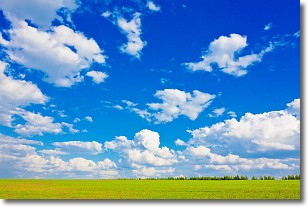Weather Alert in Michigan
Air Quality Alert issued July 24 at 12:10PM EDT by NWS Grand Rapids MI
AREAS AFFECTED: Mason; Lake; Osceola; Clare; Oceana; Newaygo; Mecosta; Isabella; Montcalm; Gratiot
DESCRIPTION: Air Quality Advisory for Friday, July 25, 2025 The Michigan Department of Environment, Great Lakes, and Energy (EGLE) has issued an Air Quality Advisory for elevated levels of fine particulate (PM2.5) in the northern half of the Lower Peninsula starting at 3 am on Friday. Pollutants within those areas are expected to be in the Unhealthy for Sensitive Groups (USG, Orange AQI) range. The Air Quality Advisory includes the following counties in the Lower Peninsula: Clare, Gratiot, Isabella, Lake, Mason, Mecosta, Montcalm, Newaygo, Oceana, and Osceola Smoke from Canadian wildfires will move into the Upper Peninsula Thursday afternoon. Models then show the plume moving southeast, reaching the northern portions of the Lower Peninsula early Friday morning and continuing towards the central portion of the state. As the smoke moves in, we anticipate PM2.5 to increase into the Unhealthy for Sensitive Groups (USG) range. There is a possibility that hourly levels could reach the Unhealthy (red AQI) range for a short period of time. It is recommended that, when possible, you avoid strenuous outdoor activities, especially those with heart disease and respiratory diseases like asthma. Monitor for symptoms such as wheezing, coughing, chest tightness, dizziness, or burning in nose, throat, and eyes. Reduce or eliminate activities that contribute to air pollution, such as: outdoor burning; use of residential wood burning devices. Tips for households: Keep windows closed overnight to prevent smoke from getting indoors and, if possible, run central air conditioning with MERV-13 or higher rated filters. For up-to-date air quality data for Michigan visit the MiAir site: https://air-egle.hub.arcgis.com/ For up-to-date air quality data nationally visit EPAs Air Now site: https://www.airnow.gov/ For further health information, please see MDHHS Wildfire Smoke and Your Health site: https://www.michigan.gov/mdhhs/safety-injury-prev/environmental-health/ your-health-and-wildfire-smoke
INSTRUCTION: N/A
Want more detail? Get the Complete 7 Day and Night Detailed Forecast!
Current U.S. National Radar--Current
The Current National Weather Radar is shown below with a UTC Time (subtract 5 hours from UTC to get Eastern Time).

National Weather Forecast--Current
The Current National Weather Forecast and National Weather Map are shown below.

National Weather Forecast for Tomorrow
Tomorrow National Weather Forecast and Tomorrow National Weather Map are show below.

North America Water Vapor (Moisture)
This map shows recent moisture content over North America. Bright and colored areas show high moisture (ie, clouds); brown indicates very little moisture present; black indicates no moisture.

Weather Topic: What are Contrails?
Home - Education - Cloud Types - Contrails
 Next Topic: Cumulonimbus Clouds
Next Topic: Cumulonimbus Clouds
A contrail is an artificial cloud, created by the passing of an
aircraft.
Contrails form because water vapor in the exhaust of aircraft engines is suspended
in the air under certain temperatures and humidity conditions. These contrails
are called exhaust contrails.
Another type of contrail can form due to a temporary reduction in air pressure
moving over the plane's surface, causing condensation.
These are called aerodynamic contrails.
When you can see your breath on a cold day, it is also because of condensation.
The reason contrails last longer than the condensation from your breath is
because the water in contrails freezes into ice particles.
Next Topic: Cumulonimbus Clouds
Weather Topic: What are Cumulus Clouds?
Home - Education - Cloud Types - Cumulus Clouds
 Next Topic: Drizzle
Next Topic: Drizzle
Cumulus clouds are fluffy and textured with rounded tops, and
may have flat bottoms. The border of a cumulus cloud
is clearly defined, and can have the appearance of cotton or cauliflower.
Cumulus clouds form at low altitudes (rarely above 2 km) but can grow very tall,
becoming cumulus congestus and possibly the even taller cumulonimbus clouds.
When cumulus clouds become taller, they have a greater chance of producing precipitation.
Next Topic: Drizzle
Current conditions powered by WeatherAPI.com




